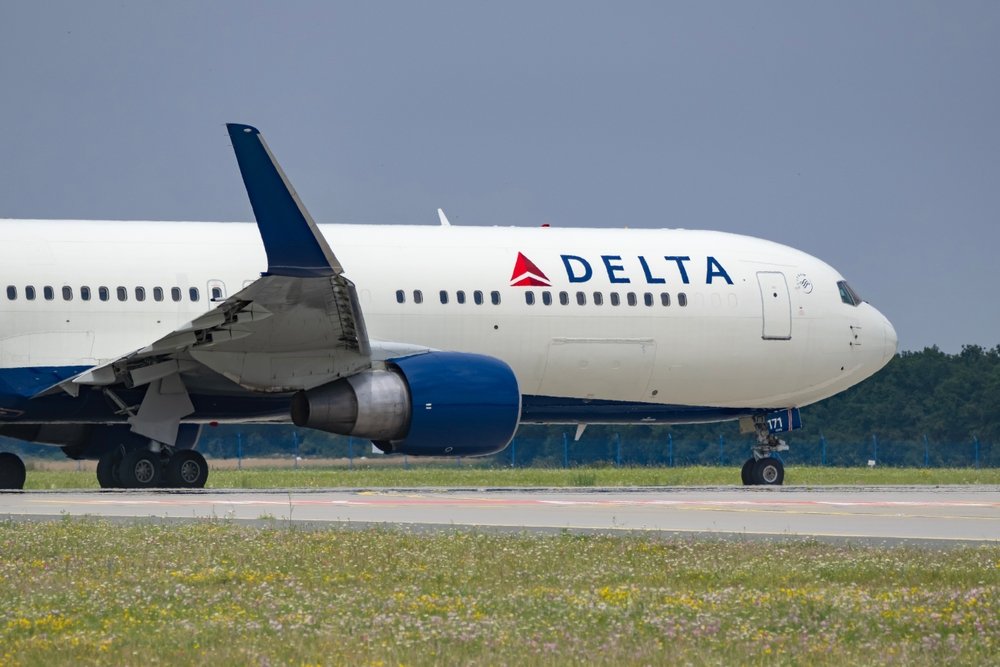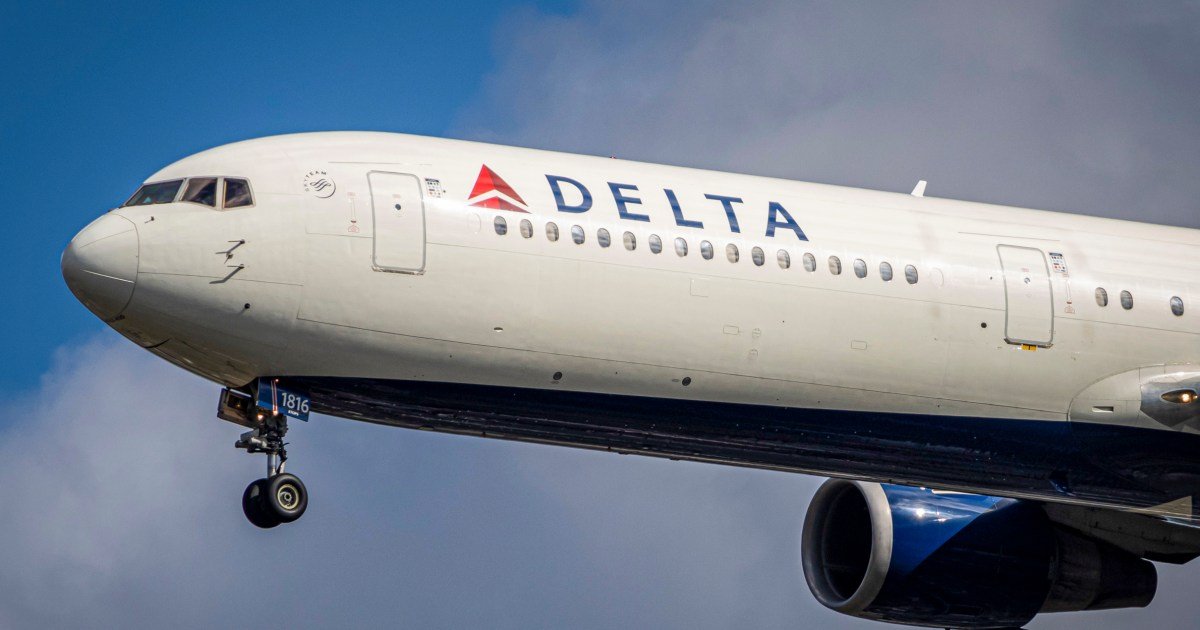AI in Travel
A Resilient Leader in the AI-Driven Travel Revolution

In the ever-shifting landscape of global travel, Booking Holdings (BKNG) has emerged as a paragon of strategic foresight and technological mastery. Its Q2 2025 results, released amid lingering macroeconomic uncertainty, underscore a company not merely riding the wave of travel recovery but actively reshaping it. Revenue surged 16% year-over-year to $6.8 billion, far outpacing analyst expectations, while adjusted EPS soared 32% to $55.40. These figures are not accidental; they are the product of a meticulously engineered strategy centered on artificial intelligence, platform integration, and ancillary revenue innovation. For investors seeking resilience in a volatile market, Booking Holdings offers a compelling case study in sustainable competitive advantage.
The AI-Powered Flywheel: Data, Personalization, and Network Effects
Booking Holdings’ dominance begins with its unparalleled data moat. Over 20 years, the company has amassed 1 billion room nights, 74 million car rental days, and 36 million flights booked annually, alongside 100 million verified user reviews. This trove of behavioral and transactional data is not just a defensive asset—it is the foundation for generative AI models that transform travel planning into a hyper-personalized experience. Consider Booking.com’s AI Trip Planner, which allows users to converse naturally with an AI assistant to design itineraries, or Agoda’s machine learning-driven pricing algorithms, which optimize revenue for both hosts and travelers.
The strategic genius lies in the flywheel effect: more users generate more data, which fuels better AI, which attracts more users and providers. This self-reinforcing cycle is amplified by a capital-light business model. Unlike traditional hospitality or airline firms, Booking Holdings does not own inventory. Instead, it operates as a digital intermediary, earning commissions and merchant fees while maintaining razor-thin operating expenses. In Q2 2025, operating expenses grew only 14%, outpacing revenue’s 16% growth, and adjusted EBITDA margins held steady at 35.6%.
Connected Trips: From Transactional to Ecosystem Play
The “Connected Trip” strategy is the linchpin of Booking Holdings’ long-term vision. By bundling accommodations, flights, car rentals, dining, and attractions into a single platform, the company is transforming itself from a booking tool into a comprehensive travel ecosystem. This shift is not merely about convenience—it is about capturing a larger share of the traveler’s wallet. In Q2 2025, connected trip transactions grew 40% year-over-year, with customers booking across multiple verticals spending 25% more than those using single services.
The financial implications are profound. Ancillary services now account for 12% of gross bookings, a figure expected to rise as AI-driven cross-selling becomes more sophisticated. For instance, Priceline’s AI assistant “Penny” can proactively suggest last-minute upgrades or dining reservations based on a user’s travel history, while Kayak’s integration with ChatGPT enables real-time itinerary adjustments. These innovations not only enhance customer lifetime value but also create switching costs that deter users from competitors like Expedia or Airbnb.
Competitive Advantages in a Fragmented Market
Booking Holdings’ leadership is underpinned by three durable advantages:
- Global Scale and Network Effects: With 31 million listings across 220 countries and 559 million monthly visitors to Booking.com, the company’s scale is unmatched. This breadth allows it to hedge against regional downturns while maintaining pricing power.
- AI-Driven Personalization: Unlike competitors focusing on incremental improvements, Booking Holdings is deploying AI across its entire portfolio—think Agoda’s PriceAggregator or OpenTable’s AI-driven restaurant recommendations. This distributed R&D model accelerates innovation and reduces risk.
- Capital Efficiency: A $3.1 billion free cash flow in Q2 2025, coupled with $24.6 billion in remaining stock repurchase authorization, underscores a disciplined approach to capital allocation. Shareholders benefit from both buybacks and a robust dividend ($9.60 per share, payable in September 2025).
Navigating Macro Risks and Regulatory Challenges
Critics may cite macroeconomic headwinds—geopolitical tensions, inflation, or a potential travel slowdown. Yet Booking Holdings’ Q2 guidance (7–9% revenue growth for Q3 2025) suggests demand remains resilient. Moreover, its AI-driven cost discipline (11% growth in adjusted fixed operating expenses despite 16% revenue expansion) positions it to weather downturns better than peers.
Regulatory risks, such as the EU’s Digital Markets Act, loom large. However, Booking Holdings’ strategy to shift from price competition to experience-driven value—via AI-powered concierge services and dynamic problem-solving (e.g., automatic flight rebooking) mitigates disintermediation risks. In this model, regulatory scrutiny becomes less of a threat and more of a catalyst for differentiation.
A Compelling Long-Term Buy
For investors, Booking Holdings represents a rare combination of near-term profitability and long-term innovation. At a $188 billion market cap, the stock trades at 26x FY2024 earnings, a premium to its peers but justified by its superior margins, data assets, and AI execution. The company’s ability to reinvent itself—from a hotel booking site to an AI-driven travel concierge—demonstrates a management team unafraid of disruption.
While the travel sector is cyclical, Booking Holdings has engineered its business to be anti-fragile. Its AI moat, capital-light model, and ecosystem strategy create a fortress of advantages that few can replicate. For those seeking exposure to a resilient, high-margin business poised to dominate the next phase of digital travel, Booking Holdings is not just a buy—it is a strategic hold.
AI in Travel
Delta rejects AI pricing under political heat

Major Carrier Commits to Fair Pricing Amid Growing Congressional Scrutiny
Delta Air Lines has taken a definitive stance against artificial intelligence-powered personalized ticket pricing, responding to mounting pressure from federal lawmakers and widespread consumer anxiety about algorithmic discrimination in air travel costs.
The Atlanta-based carrier’s position emerged following sharp criticism from prominent Democratic senators who questioned whether the airline planned to use AI technology to extract maximum revenue from individual passengers based on their personal financial profiles.
Congressional Pushback Intensifies
Democratic Senators Ruben Gallego of Arizona, Mark Warner of Virginia, and Richard Blumenthal of Connecticut spearheaded the legislative challenge, arguing that AI-driven individualized pricing could exploit travelers by calibrating fares to their perceived ability to pay premium rates.
The senators’ concerns centered on algorithmic pricing systems that could analyze personal data — from browsing history to demographic information — to determine how much each customer might be willing to spend on airfare.
Delta’s response was unequivocal. The airline categorically denied any intention to implement pricing algorithms that target individual consumers with customized rates based on personal information. This commitment represents a significant policy declaration in an industry increasingly embracing artificial intelligence across operations.
Technology Integration Without Personalization
While rejecting personalized AI pricing, Delta plans substantial technological advancement through its partnership with Fetcherr, an AI pricing specialist. The collaboration aims to deploy AI-based revenue management systems across 20 percent of the carrier’s domestic route network by late 2025.
The distinction Delta emphasizes lies in data aggregation versus individual targeting. The airline maintains its pricing algorithms will analyze broad market trends, competitive landscapes, and general demand patterns rather than personal consumer profiles.
This approach reflects traditional airline revenue management practices that have utilized dynamic pricing for three decades, adjusting fares based on factors like seasonal demand, fuel costs, and competitive positioning.
Industry-Wide Ethical Concerns
American Airlines Chief Executive Robert Isom echoed Delta’s position, stating that AI-driven personalized pricing could fundamentally undermine passenger trust in airline fairness. His comments suggest growing industry recognition that aggressive algorithmic pricing could trigger regulatory backlash and consumer boycotts.
The airline industry’s cautious approach contrasts sharply with retail sectors where personalized pricing has become increasingly common, particularly in e-commerce platforms that adjust prices based on user behavior and demographics.
Legislative Response Takes Shape
Representatives Greg Casar of Texas and Rashida Tlaib of Michigan have introduced federal legislation specifically targeting AI pricing discrimination. Their proposed bill would prohibit companies from using artificial intelligence to set individualized prices or wages based on sensitive personal data.
The legislation addresses scenarios where algorithms might exploit vulnerable moments, such as raising travel prices for individuals searching for family funeral information or medical emergency travel.
A Federal Trade Commission report released in January documented widespread retail use of personal information for price customization, highlighting consumer vulnerability to algorithmic manipulation across multiple industries.
Market Dynamics and Consumer Protection
Delta‘s commitment comes as airlines face unprecedented scrutiny over pricing transparency and fairness. The carrier emphasized that its pricing philosophy will continue reflecting market-wide factors rather than individual consumer analysis.
The airline industry’s embrace of artificial intelligence spans multiple operational areas, from route optimization to customer service automation. However, pricing applications have generated the most significant regulatory and public relations challenges.
Senator Gallego acknowledged Delta’s commitment while pressing for greater transparency about data collection practices and pricing methodologies. His comments highlighted ongoing congressional interest in monitoring airline compliance with anti-discrimination principles.
The debate reflects broader societal tensions about artificial intelligence applications in consumer-facing industries, particularly where algorithmic decisions could exacerbate economic inequality or exploit personal circumstances.
Delta’s proactive stance may influence competitor policies and establish industry standards for ethical AI implementation, potentially preventing more restrictive federal regulations while maintaining consumer confidence in airline pricing fairness.
AI in Travel
India Emerges as a Leader in AI Adoption and Travel Enhancement, ETTravelWorld

Indian travellers are embracing AI like never before. According to Booking.com’s Global AI Sentiment Report, Indian consumers are among the most positive globally towards artificial intelligence, with 99 per cent expressing excitement, 98 per cent open to using AI in travel, and 96 per cent familiar with the technology.
However, while enthusiasm runs high, trust in full AI autonomy lags. Only 16 per cent of Indian travellers fully trust AI, and just 12 per cent are comfortable with AI making independent travel decisions without human input. The majority see AI as a powerful assistant—not a replacement—for human judgment.
“Generative AI represents one of the most significant technological shifts of our era,” said Santosh Kumar, Regional Manager, South Asia, at Booking.com. “In India, people are not just curious — they’re actively using AI to shape better travel experiences. The opportunity is enormous, but so is our responsibility to guide travellers with trust and transparency.”
Key India-Specific Insights from the Report:
Top travel AI uses: researching destinations (53 per cent ), finding local experiences (44 per cent ), and getting restaurant recommendations (42 per cent )
– In-trip AI use: translation (55 per cent ), local suggestions (52 per cent ), navigating transport (41 per cent )
– Post-trip AI use: photo editing (51 per cent )
– 45 per cent trust AI assistants more than travel bloggers (36 per cent ) or social media influencers (31 per cent )
– 87 per cent already use AI for some aspect of travel
– 82 per cent value AI tools that reduce crowding and overtourism
Despite this uptake, 92 per cent of Indian respondents still express at least one concern around AI, particularly its impersonal nature and the need for verification: 32 per cent always fact-check AI results, and 38 per cent find it lacks the human touch.
The report categorizes Indian AI sentiment into groups:
– 46 per cent – AI Enthusiasts
-28 per cent – AI Advocates
– 10 per cent – AI Detractors
– 5 per cent – AI Cautious
– 4 per cent – AI Skeptics
Globally, APAC ranks among the most AI-friendly regions, while North America and Europe exhibit more skepticism and demand for transparency.
Bottom Line:
India is leading the charge into AI-powered travel, driven by curiosity, convenience, and a willingness to experiment—but travellers still want human validation. Booking.com is building on this momentum to make AI a more transparent, empowering tool for the next generation of global explorers.
AI in Travel
Delta Air Lines assures U.S. lawmakers it will not personalize fares using AI

WASHINGTON – Delta Air Lines said on Friday it will not use artificial intelligence to set personalized ticket prices for passengers after facing sharp criticism from U.S. lawmakers and broad public concern.
Last week, Democratic Senators Ruben Gallego, Mark Warner and Richard Blumenthal said they believed the Atlanta-based airline would use AI to set individual prices, which would “likely mean fare price increases up to each individual consumer’s personal ‘pain point.’”
Delta said it has not used AI to set personalized prices but previously said it plans to deploy AI-based revenue management technology across 20% of its domestic network by the end of 2025 in partnership with Fetcherr, an AI pricing company.
“There is no fare product Delta has ever used, is testing or plans to use that targets customers with individualized prices based on personal data,” Delta told the senators in a letter on Friday, seen by Reuters. “Our ticket pricing never takes into account personal data.”
Senators praised Delta’s commitment not to use AI for personal pricing but expressed many questions and want more details about what data Delta is collecting to set prices.
“Delta is telling their investors one thing, and then turning around and telling the public another,” Gallego said. “If Delta is in fact using aggregated instead of individualized data, that is welcome news.”
Delta declined comment on Gallego’s statement.
The senators cited a comment in December by Delta President Glen Hauenstein that the carrier’s AI price-setting technology is capable of setting fares based on a prediction of “the amount people are willing to pay for the premium products related to the base fares.”
Last week, American Airlines CEO Robert Isom said using AI to set ticket prices could hurt consumer trust.
“This is not about bait and switch. This is not about tricking,” Isom said on an earnings call, adding “talk about using AI in that way, I don’t think it’s appropriate. And certainly from American, it’s not something we will do.”
Democratic lawmakers Greg Casar and Rashida Tlaib last week introduced legislation to bar companies from using AI to set prices or wages based on Americans’ personal data and would specifically ban airlines raising individual prices after seeing a search for a family obituary.
They cited a Federal Trade Commission staff report in January that found “retailers frequently use people’s personal information to set targeted, tailored prices for goods and services — from a person’s location and demographics, down to their mouse movements on a webpage.”
The FTC cited a hypothetical example of a consumer profiled as a new parent who could intentionally be shown higher-priced baby thermometers and collect behavioral details to forecast a customer’s state of mind.
Delta said airlines have used dynamic pricing for more than three decades, in which pricing fluctuates based on a variety of factors like overall customer demand, fuel prices and competition, but not a specific consumer’s personal information.
“Given the tens of millions of fares and hundreds of thousands of routes for sale at any given time, the use of new technology like AI promises to streamline the process by which we analyze existing data and the speed and scale at which we can respond to changing market dynamics,” Delta’s letter said.
-

 Brand Stories2 weeks ago
Brand Stories2 weeks agoBloom Hotels: A Modern Vision of Hospitality Redefining Travel
-

 Brand Stories1 week ago
Brand Stories1 week agoCheQin.ai sets a new standard for hotel booking with its AI capabilities: empowering travellers to bargain, choose the best, and book with clarity.
-

 Destinations & Things To Do2 weeks ago
Destinations & Things To Do2 weeks agoUntouched Destinations: Stunning Hidden Gems You Must Visit
-

 Destinations & Things To Do1 week ago
Destinations & Things To Do1 week agoThis Hidden Beach in India Glows at Night-But Only in One Secret Season
-

 AI in Travel2 weeks ago
AI in Travel2 weeks agoAI Travel Revolution: Must-Have Guide to the Best Experience
-

 Brand Stories4 weeks ago
Brand Stories4 weeks agoVoice AI Startup ElevenLabs Plans to Add Hubs Around the World
-

 Brand Stories3 weeks ago
Brand Stories3 weeks agoHow Elon Musk’s rogue Grok chatbot became a cautionary AI tale
-

 Asia Travel Pulse4 weeks ago
Asia Travel Pulse4 weeks agoLooking For Adventure In Asia? Here Are 7 Epic Destinations You Need To Experience At Least Once – Zee News
-

 AI in Travel4 weeks ago
AI in Travel4 weeks ago‘Will AI take my job?’ A trip to a Beijing fortune-telling bar to see what lies ahead | China
-

 Brand Stories4 weeks ago
Brand Stories4 weeks agoChatGPT — the last of the great romantics

You must be logged in to post a comment Login